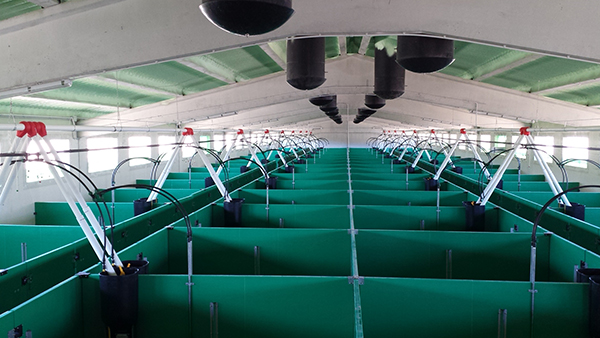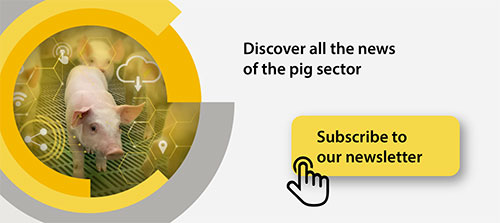Blog
Blog

How will Royal Decree 809/2025 affect our farms?
04th November 2025 - News
The Royal Decree 809/2025 establishes a new table of stocking densities that will transform the management and design of pig farms in Spain. This regulation defines three types of farms based on management systems and levels of animal welfare, with the aim of promoting more responsible, sustainable production aligned with European standards.
Implementation deadlines and project impact
The new stocking densities will become mandatory as of 9th March 2026. Until then, any new project or farm expansion must comply with the criteria for Type 3 farms, which require a minimum area of 0.74 m² per pig up to 110 kg.
From that date onwards, existing or newly established farms will be able to adopt Type 1, 2, or 3 classifications, depending on the animal welfare measures implemented and the level of adaptation of their facilities.
Types of farms according to Royal Decree 809/2025
Type 1 farms are characterized by keeping all animals without tail docking, and no docked pigs may be introduced. They represent the highest level of animal welfare, promoting a more natural and respectful management approach.
Type 2 farms may house docked pigs, provided that certain mandatory measures are met—such as maintaining an Animal Welfare Plan, achieving an enrichment materials evaluation score above 86%, ensuring continuous temperature monitoring, reducing antibiotic use, and having a responsible farm veterinarian.
Additionally, these farms may adopt optional measures to improve comfort, such as carbon dioxide or ammonia monitoring systems, internal temperature control, partially solid flooring in pens, or a 25% increase in feeding and drinking points above the minimum required.
Type 3 farms include all facilities that do not meet the previous criteria and must comply with the general minimum densities established by the Royal Decree.

Fattening farms will need to adjust the space per animal before March 2026. Photo: Rotecna.
Necessary modifications in fattening farms
The implementation of Royal Decree 809/2025 affects not only animal density but also the structural and environmental conditions of pig farms. The main adjustments required include:
- Reducing the number of animals when it is not possible to expand the available surface area, in order to comply with new space requirements.
- Incorporating enrichment materials that stimulate exploratory and manipulative behaviors in pigs. These materials must be available continuously and kept in good condition.
- Adapting feeding and watering systems, ensuring an appropriate number of access points per animal depending on weight and production group.
- Complying with specific environmental parameters: noise levels below 85 dB, maximum ammonia concentration of 20 ppm, carbon dioxide levels below 3,000 ppm, and minimum lighting of 40 lux for at least eight hours per day.
- Implementing ventilation and temperature control systems to maintain stable and appropriate conditions inside buildings throughout the year.
A step toward more sustainable pig production
The Royal Decree 809/2025 represents a significant step forward toward a more ethical, efficient, and sustainable pig production system. The new classification of farms and the additional animal welfare and environmental management requirements reinforce the sector’s commitment to quality, biosecurity, and long-term sustainability.
With the regulation coming into force in March 2026, farms have a crucial period to adapt their facilities, optimize management, and ensure regulatory compliance, strengthening the position of the Spanish pig industry as a European leader in responsible production.








